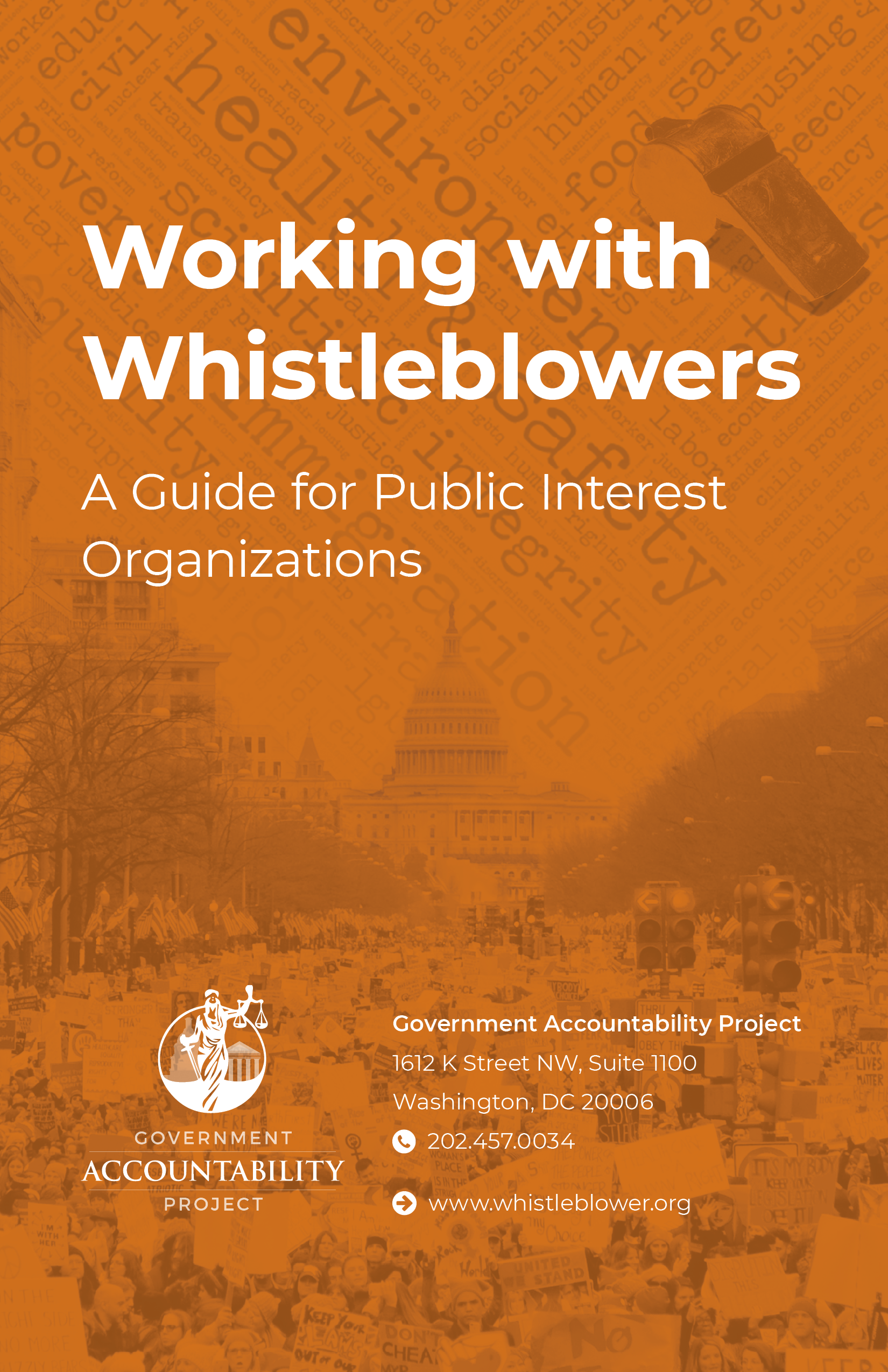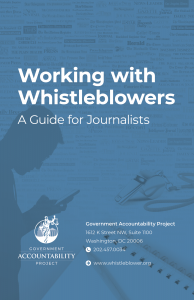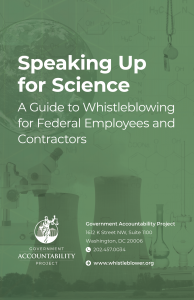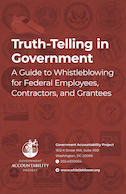Government Accountability Project has developed four valuable resources about whistleblowing—one for all federal workers, another for public interest organizations, one for journalists, and finally one for federal workers in the science, environment and natural resource agencies.
Our government’s integrity depends on the commitment and effort of millions of federal employees, contractors and grantees around the world. Those same workers are in the best position to learn when decisions and actions deviate from the core mission and responsibilities of government, be it through corruption, failing to comply with laws and regulations, wasting taxpayer money, jeopardizing public health and safety, or otherwise abusing the public trust.
Government Accountability Project’s newest resource seeks to help federal government employees, contractors, and grantees–across all agencies and issues—who have discovered serious abuses of public trust and need guidance about their rights, risks and options.
Whether you have yet to raise concerns or have already made disclosures, this guide is the first step for navigating the complex path of whistleblowing safely and effectively.
Download the Guide here.

Increasingly, non-profit advocacy organizations concerned about government abuses and malfeasance in a whole host of areas—government waste, ethics violations, environmental dangers, censorship, immigration policy, etc.—are recognizing that whistleblowers are essential sources of information. Government Accountability Project’s new guide offers practical guidance on how public interest organizations can support employees who want to report concerns about misconduct while ensuring that neither the whistleblower nor the organization are made vulnerable inadvertently.
Download the Guide here.

This Guide, initially released in Fall 2017, was updated in Summer 2019, and offers information to help journalists work effectively with their whistleblower sources and limit the chances of endangering their sources’ professional and physical safety. The power of whistleblowers to hold institutions and leaders accountable often depends on the critical work of journalists, who verify whistleblowers’ disclosures and then bring them to the public. This Guide, released in Fall 2017, offers information to help journalists navigate the complexities of working with whistleblowers, including best practices to protect sources and minimize reprisal while exposing abuses of public trust.
Download the Guide here.
 [Updated February 2019] Government Accountability Project’s newest resource seeks to offer information to federal employees and contractors who work in the science, environment and natural resource agencies, which have been plagued by an actively anti-science political culture openly hostile to their public missions by issuing gag orders, censoring words and information on government websites, cutting science and technology budgets, and maintaining strong ties to the industries they are charged with regulating.
[Updated February 2019] Government Accountability Project’s newest resource seeks to offer information to federal employees and contractors who work in the science, environment and natural resource agencies, which have been plagued by an actively anti-science political culture openly hostile to their public missions by issuing gag orders, censoring words and information on government websites, cutting science and technology budgets, and maintaining strong ties to the industries they are charged with regulating.
Download the Guide here.
In addition to a new brochure, Make a Note to the Record: How Federal Scientists Can Protect Science for the Public Good, which Government Accountability Project developed along with the Union of Concerned Scientists and other organizations to encourage federal employees to document abuses of scientific integrity, Government Accountability Project’s new resource on whistleblowing for federal employees is intended to offer support for those employees unwilling to stay silent in the face of serious abuses of public trust.


